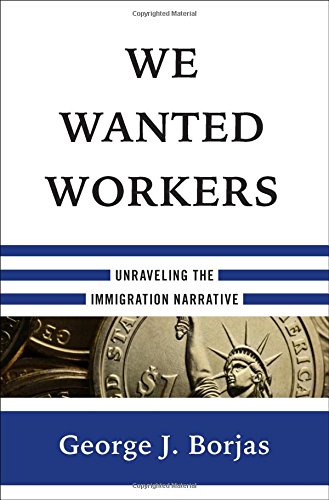

Most ebook files are in PDF format, so you can easily read them using various software such as Foxit Reader or directly on the Google Chrome browser.
Some ebook files are released by publishers in other formats such as .awz, .mobi, .epub, .fb2, etc. You may need to install specific software to read these formats on mobile/PC, such as Calibre.
Please read the tutorial at this link: https://ebookbell.com/faq
We offer FREE conversion to the popular formats you request; however, this may take some time. Therefore, right after payment, please email us, and we will try to provide the service as quickly as possible.
For some exceptional file formats or broken links (if any), please refrain from opening any disputes. Instead, email us first, and we will try to assist within a maximum of 6 hours.
EbookBell Team

5.0
58 reviewsFrom “America’s leading immigration economist” (The Wall Street Journal), a refreshingly level-headed exploration of the effects of immigration.
We are a nation of immigrants, and we have always been concerned about immigration. As early as 1645, the Massachusetts Bay Colony began to prohibit the entry of “paupers.” Today, however, the notion that immigration is universally beneficial has become pervasive. To many modern economists, immigrants are a trove of much-needed workers who can fill predetermined slots along the proverbial assembly line.
But this view of immigration’s impact is overly simplified, explains George J. Borjas, a Cuban-American, Harvard labor economist. Immigrants are more than just workers―they’re people who have lives outside of the factory gates and who may or may not fit the ideal of the country to which they’ve come to live and work. Like the rest of us, they’re protected by social insurance programs, and the choices they make are affected by their social environments.
In We Wanted Workers, Borjas pulls back the curtain of political bluster to show that, in the grand scheme, immigration has not affected the average American all that much. But it has created winners and losers. The losers tend to be nonmigrant workers who compete for the same jobs as immigrants. And somebody’s lower wage is somebody else’s higher profit, so those who employ immigrants benefit handsomely. In the end, immigration is mainly just another government redistribution program.
“I am an immigrant,” writes Borjas, “and yet I do not buy into the notion that immigration is universally beneficial. . . . But I still feel that it is a good thing to give some of the poor and huddled masses, people who face so many hardships, a chance to experience the incredible opportunities that our exceptional country has to offer.” Whether you’re a Democrat, a Republican, or an Independent, We Wanted Workers is essential reading for anyone interested in the issue of immigration in America today.